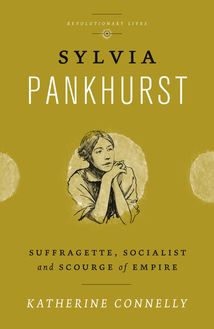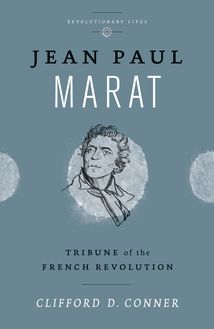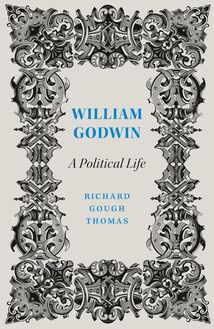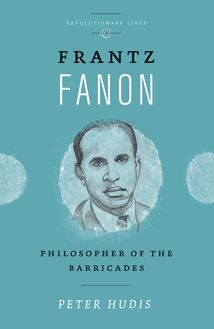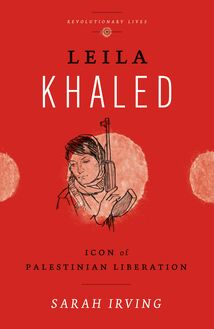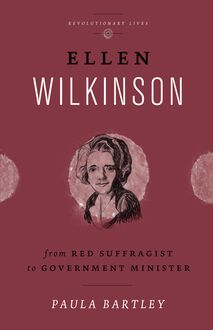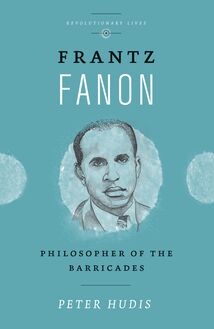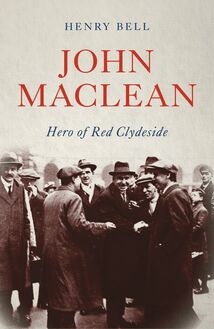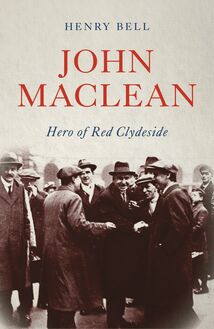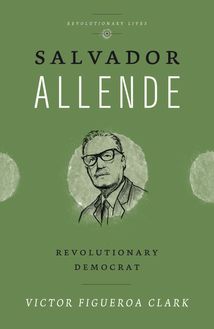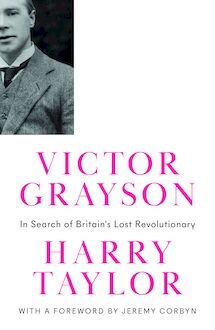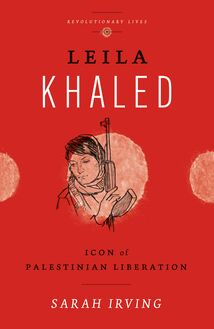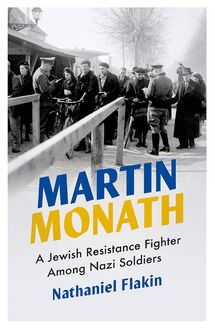William Godwin , livre ebook
99
pages
English
Ebooks
2019
Vous pourrez modifier la taille du texte de cet ouvrage
Obtenez un accès à la bibliothèque pour le consulter en ligne En savoir plus
Découvre YouScribe en t'inscrivant gratuitement
Découvre YouScribe en t'inscrivant gratuitement
99
pages
English
Ebooks
2019
Vous pourrez modifier la taille du texte de cet ouvrage
Obtenez un accès à la bibliothèque pour le consulter en ligne En savoir plus
Publié par
Date de parution
20 février 2019
Nombre de lectures
1
EAN13
9781786803900
Langue
English
'Government by its very nature counteracts the improvement of original mind' - William Godwin
William Godwin was the first major anarchist thinker in the Anglophone world, who rocked the establishment at the beginning of the nineteenth century. Famously married to Mary Wollstonecraft, father to Mary Shelley and inspiration to Lord Byron, his life and works lie at the heart of British Radicalism and Romanticism.
In this biography, Richard Gough Thomas reads Godwin afresh, drawing on newly discovered letters and journals. He situates Godwin's early life in the counterculture of eighteenth-century religious dissent, before moving on to exploring the ideas of the French Revolution. As Godwin's groundbreaking works propelled him from Whig party hack to celebrity philosopher, his love affair with Mary Wollstonecraft saw him ostracised in both liberal and conservative circles.
Godwin's anarchism always remained at the centre of his work, and remains his key legacy, inspiring libertarians, both left and right-wing. This biography places Godwin alongside his famous family as a major political, ethical and educational writer and shows why a reappraisal of his ideas is needed today.
Series Preface
Acknowledgements
1. Introduction: The Anarchist
2. The Minister: 1756–93
3. The Philosopher: 1793
4. The Activist: 1794–95
5. The Husband: 1796–99
6. The Educator: 1800–09
7. The Father: 1810–19
8. The Pensioner: 1819–36
9. The Legacy
Notes
Bibliography
Index
Publié par
Date de parution
20 février 2019
Nombre de lectures
1
EAN13
9781786803900
Langue
English
William Godwin
Also available:
Salvador Allende Revolutionary Democrat Victor Figueroa Clark
Hugo Ch vez Socialist for the Twenty-first Century Mike Gonzalez
W.E.B. Du Bois Revolutionary Across the Color Line Bill V. Mullen
Frantz Fanon Philosopher of the Barricades Peter Hudis
Mohandas Gandhi Experiments in Civil Disobedience Talat Ahmed
Leila Khaled Icon of Palestinian Liberation Sarah Irving
Jean Paul Marat Tribune of the French Revolution Clifford D. Conner
John Maclean Hero of Red Clydeside Henry Bell
Sylvia Pankhurst Suffragette, Socialist and Scourge of Empire Katherine Connelly
Paul Robeson A Revolutionary Life Gerald Horne
Percy Bysshe Shelley Poet and Revolutionary Jacqueline Mulhallen
Toussaint Louverture A Black Jacobin in the Age of Revolutions Charles Forsdick and Christian H gsbjerg
Ellen Wilkinson From Red Suffragist to Government Minister Paula Bartley
Gerrard Winstanley The Digger s Life and Legacy John Gurney
William Godwin
A Political Life
Richard Gough Thomas
First published 2019 by Pluto Press
345 Archway Road, London N6 5AA
www.plutobooks.com
Copyright Richard Gough Thomas 2019
The right of Richard Gough Thomas to be identified as the author of this work has been asserted by him in accordance with the Copyright, Designs and Patents Act 1988.
British Library Cataloguing in Publication Data
A catalogue record for this book is available from the British Library
ISBN 978 0 7453 3836 1 Hardback
ISBN 978 0 7453 3835 4 Paperback
ISBN 978 1 7868 0389 4 PDF eBook
ISBN 978 1 7868 0391 7 Kindle eBook
ISBN 978 1 7868 0390 0 EPUB eBook
This book is printed on paper suitable for recycling and made from fully managed and sustained forest sources. Logging, pulping and manufacturing processes are expected to conform to the environmental standards of the country of origin.
Typeset by Stanford DTP Services, Northampton, England
Simultaneously printed in the United Kingdom and United States of America
Contents
Series Preface
Acknowledgements
1. Introduction: The Anarchist
2. The Minister: 1756-93
3. The Philosopher: 1793
4. The Activist: 1794-95
5. The Husband: 1796-99
6. The Educator: 1800-09
7. The Father: 1810-19
8. The Pensioner: 1819-36
9. The Legacy
Notes
Bibliography
Index
Series Preface
Revolutionary Lives is a series of short, critical biographies of radical figures from throughout history. The books are sympathetic but not sycophantic, and the intention is to present a balanced and, where necessary, critical evaluation of the individual s place in their political field, putting their actions and achievements in context and exploring issues raised by their lives, such as the use or rejection of violence, nationalism, or gender in political activism. While individuals are the subject of the books, their personal lives are dealt with lightly except insofar as they mesh with political concerns. The focus is on the contribution these revolutionaries made to history, an examination of how far they achieved their aims in improving the lives of the oppressed and exploited, and how they can continue to be an inspiration for many today.
Series Editors:
Sarah Irving, King s College, London
Professor Paul Le Blanc, La Roche College, Pittsburgh
Acknowledgements
My heartfelt thanks must go out to everyone involved with Newcastle University s William Godwin: Forms, Fears, Futures conference in 2017, and the community of Godwin scholars across the world. I am immensely grateful to Professor Mark Philp for his encouragement, and this book is stronger and richer for the suggestions and advice of John-Erik Hansen.
Thanks must also go to David Castle and Robert Webb at Pluto Press for their patience with a first-time author.
Finally, the book would never have been written without the urging of Joshua M. Reynolds, or the support of Jen Edwards, Alex Burnett and Angharad Thomas.
1
Introduction The Anarchist
His contemporaries believed him to be the most important radical thinker of their age. William Godwin (1756-1836) was a political philosopher in the purest sense - he wrote no great revolutionary speeches, nor did he ever issue a political manifesto. As the French Revolution careened from popular uprising to government terror, and from Directory to despotism, across the Channel British radicals pressed for parliamentary reform, women s rights and greater religious freedom. Godwin went further, questioning the most basic assumptions of government itself. Many of his peers were tried or imprisoned for their activism but Godwin, a lifelong critic of violence, and undeniably a theorist rather than an agitator, endured decades of abuse in the government-backed press because no political or criminal charges could ever be found against him.
William Godwin was an anarchist. He would not have understood the term in the way we do. He regarded anarchy in its popular sense, as a synonym for chaos. He recognised it as a creative chaos, however, and argued that its principal danger was that it created the conditions that might allow new (more brutal) authority to rise in its wake. Godwin was critical of authority as a principle, not merely its implementation, and believed that our ability to reason (if developed) would eventually make laws and government unnecessary. Godwin explained his ideas in An Enquiry Concerning Political Justice (1793), written at the height of the French Revolution when it seemed as if the world had been pitched into the kind of creative chaos where anything was possible. Political Justice came to be regarded as one of the first major texts in the history of anarchist thought, exemplifying what is now (loosely) defined as philosophical anarchism - the theoretical basis for anti-authoritarian principles and political action. Godwin himself was not a revolutionary. A quiet man, often shy among strangers, Godwin wanted to change the world through writing and conversation, recognising that educating people to reason for themselves was a more certain way of making things better than imposing better things on them.
Figure 1 Godwin described James Northcote s 1803 portrait as the principal memorandum of my corporal existence that will remain after my death. (National Portrait Gallery, London)
Anarchist is a word that conjures up images of revolutionary action, be it via the symbolic violence of the Black Bloc or the peaceful overthrow of the old social order in Catalonia at the beginning of the Spanish Civil War. Yet it also describes a wide range of anti-authoritarian political thought, on both the left and right, united only by a common resistance to being told what to do. The word itself has an image problem: its literal meaning is simply to be without rulers but we have been told for centuries that, without rulers, the existing order of society would tear itself apart. We might cynically observe that the existing order could do with a shake-up, but few of us wish to do without order at all, and we have been led to believe that order is maintained through the exercise of authority - of people giving orders and other people following them, with consequences for stepping too far out of line (because other people can t be trusted). Many anarchists would argue that order is simply something that happens when a group of people find out how to get along, and that most of the things that authority claims to protect us from are indirectly caused by authority in the first place (e.g. theft - which is caused by inequality, which usually benefits those in power). Making statements about what anarchists think is, of course, a quixotic endeavour. Anarchism is a philosophy, but one that naturally defies rigid definitions. Anarchism has ideas, and it has thinkers, and it is easier to write about anarchisms (or the anarchism of a particular individual) than it is to discuss every school of thought under its umbrella.
If his contribution to anarchism were the sum of Godwin s achievement, he would be an interesting figure for historians and philosophers. He was more: a novelist, historian and children s writer of enormous influence in his own time. His extensive diaries reveal his direct connection to dozens of the most important names of his time in the fields of literature, politics, science and art (too many to do justice to in one book). Most importantly, he was the loving husband of Mary Wollstonecraft - in the view of history, easily the most important feminist writer and thinker of the eighteenth century - and the father of Mary Shelley, a novelist of immense cultural significance. Their lives are closely interlinked, but this book is an account of Godwin s life and thought, and can only tackle Wollstonecraft and her daughter where their influence is crucial to Godwin s story. Readers are referred to Janet Todd s Mary Wollstonecraft: A Revolutionary Life (2000) for the most authoritative version of that writer s life; biographies of Mary Shelley are numerous but Anne K. Mellor s Mary Shelley: Her Life, Her Fiction, Her Monsters (1989) is a standard.
Godwin s story is as much held in his writing as it is in his life, and an extended discussion of his literary and philosophical works is essential to communicating why the philosopher was such a crucial (and controversial) figure in the culture of his time. This book attempts to tell the story of Godwin s life, from his rise to radical fame in the 1790s to obscurity and bankruptcy years later, and so draws extensively on his letters and diaries (preserving his idiosyncratic spelling and sometimes cryptic abbreviations). Yet it could not adequately do so without explaining the theory of Political Justice or the ideas of The Enquirer , nor could it explain the philosopher s character without Caleb Williams , St Leon , or his Memoir of Wollstonecraft. Godwin s life was a life in letters even more than it was a life in politics - his works contributed to shaping the literary
